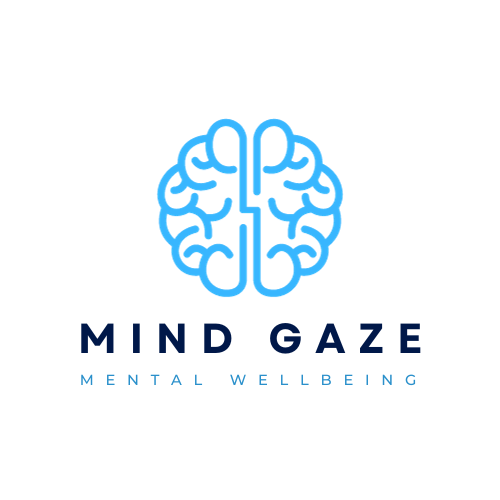In the relentless pursuit of productivity and achievement, sleep often falls prey to the relentless demands of modern life.
We sacrifice precious hours of rest in the pursuit of deadlines, social engagements, and the allure of late-night entertainment.
Yet, sleep is not a mere luxury, but a fundamental pillar of our well-being, the cornerstone upon which our physical and mental health rests. When we deprive ourselves of sleep, we chip away at this foundation, inviting a cascade of problems that can impact our daily lives and long-term health.
The Significance of Sleep: A Symphony of Restoration
Sleep is far from a state of passive inactivity; it is an active process that plays a crucial role in restoring our bodies and minds. During sleep, our bodies undergo a series of complex processes, each essential for maintaining optimal health and function:
Physical Restoration: Sleep allows our muscles to repair and rebuild themselves, replenishes depleted energy stores, and releases growth hormones that facilitate development and repair. Our muscles recover from the day’s activities, our energy stores are replenished for the day ahead, and our bodies undergo essential repairs and growth.
Cognitive Enhancement: Sleep consolidates memories, enhances learning capabilities, and improves problem-solving abilities. Memories are consolidated, our brains make connections that facilitate learning, and our cognitive abilities are sharpened, enabling us to think clearly, learn effectively, and make sound decisions.
Emotional Regulation: Sleep helps regulate emotions, reduce stress levels, and promote mental well-being. Emotional resilience is strengthened, stress hormones are reduced, and our emotional state is balanced, contributing to emotional stability and a sense of well-being.
Immune Function: Sleep strengthens the immune system, boosting our ability to fight off infections and illnesses. Our immune system is fortified, enabling us to combat infections and maintain overall health.
The Consequences of Sleep Deprivation: A Downward Spiral of Disruption
When we consistently lack sleep, we disrupt these restorative processes, leading to a cascade of negative consequences that can pervade every aspect of our lives:
Impaired Cognitive Function: Sleep deprivation impairs attention, concentration, and memory, making it difficult to focus, learn, and make decisions effectively. This can lead to academic struggles, decreased productivity, and increased errors in daily tasks. The clarity of thought, focus, and memory that are essential for effective functioning are compromised, leading to challenges in various aspects of life.
Reduced Productivity: Sleep-deprived individuals experience decreased productivity, increased errors, and slower reaction times, affecting their performance at work, school, and in daily activities. This can hinder career advancement, academic progress, and overall well-being. The ability to perform at one’s best is diminished, impacting productivity, performance, and overall success.
Emotional Disturbances: Sleep deprivation can exacerbate stress, anxiety, and irritability, leading to mood swings, emotional instability, and impaired social interactions. This can strain relationships, hinder communication, and negatively impact emotional well-being. The emotional balance and resilience that are essential for healthy relationships and social interactions are disrupted, leading to challenges in personal and professional spheres.
Physical Health Risks: Chronic sleep deprivation increases the risk of serious health problems, including obesity, heart disease, stroke, diabetes, and high blood pressure. These conditions can have a profound impact on long-term health and quality of life. The risk of developing chronic health conditions that can significantly impact one’s health and well-being is elevated.
Identifying the Culprits: Unveiling the Disrupters of Sleep
Numerous factors can contribute to sleep disturbances, ranging from lifestyle habits to underlying medical conditions. Understanding the common culprits is essential for addressing sleep problems effectively:
Stress: Stress triggers the release of stress hormones that interfere with sleep, making it difficult to fall asleep and stay asleep. Constant stress can disrupt sleep patterns, leading to chronic sleep deprivation. The constant state of alertness and tension associated with stress can make it challenging to unwind and transition into a state of restful sleep.
Anxiety: Anxiety can manifest as racing thoughts, worry, and restlessness, making it challenging to relax and fall asleep. The overwhelming sense of worry and anticipation associated with anxiety can keep the mind racing, preventing relaxation and sleep.
Depression: Depression can cause sleep disturbances, including insomnia (difficulty falling asleep) and hypersomnia (excessive sleepiness). The emotional turmoil and lack of motivation associated with depression can disrupt sleep patterns, leading to either difficulty falling asleep or excessive sleepiness.
Medical Conditions: Pain, chronic illnesses, and certain medications can disrupt sleep patterns and interfere with sleep quality. Underlying medical conditions can cause physical discomfort, disrupt sleep cycles, or interfere with sleep-regulating hormones.
If you are looking at ways to calm your anxiety, which will help you sleep better, then our article on reducing anxiety may help. Read here Anxiety Relief: Proven Strategies to Conquer Your Fears

